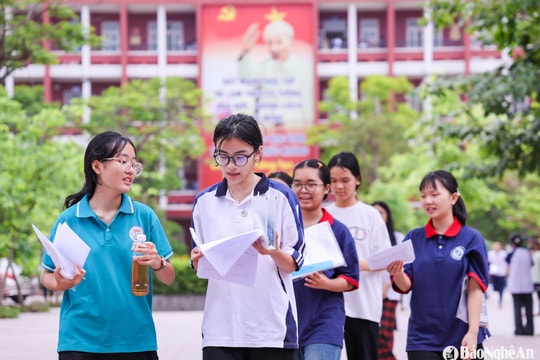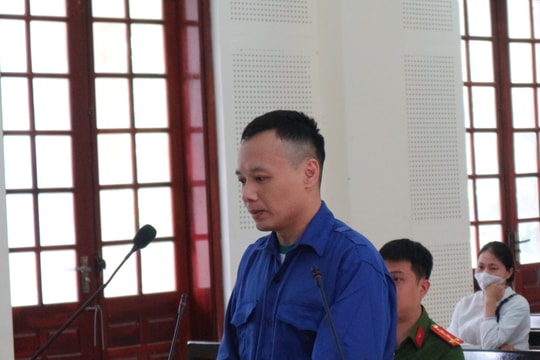Nghe An: Vocational schools face difficulties in enrollment
(Baonghean.vn) - This content was reported by a number of vocational schools in Vinh city to the Culture - Social Committee of the Provincial People's Council on the morning of October 3, at the supervision session on the implementation of recommendations after supervising vocational training, job creation and implementation of a number of labor export policies in the province.
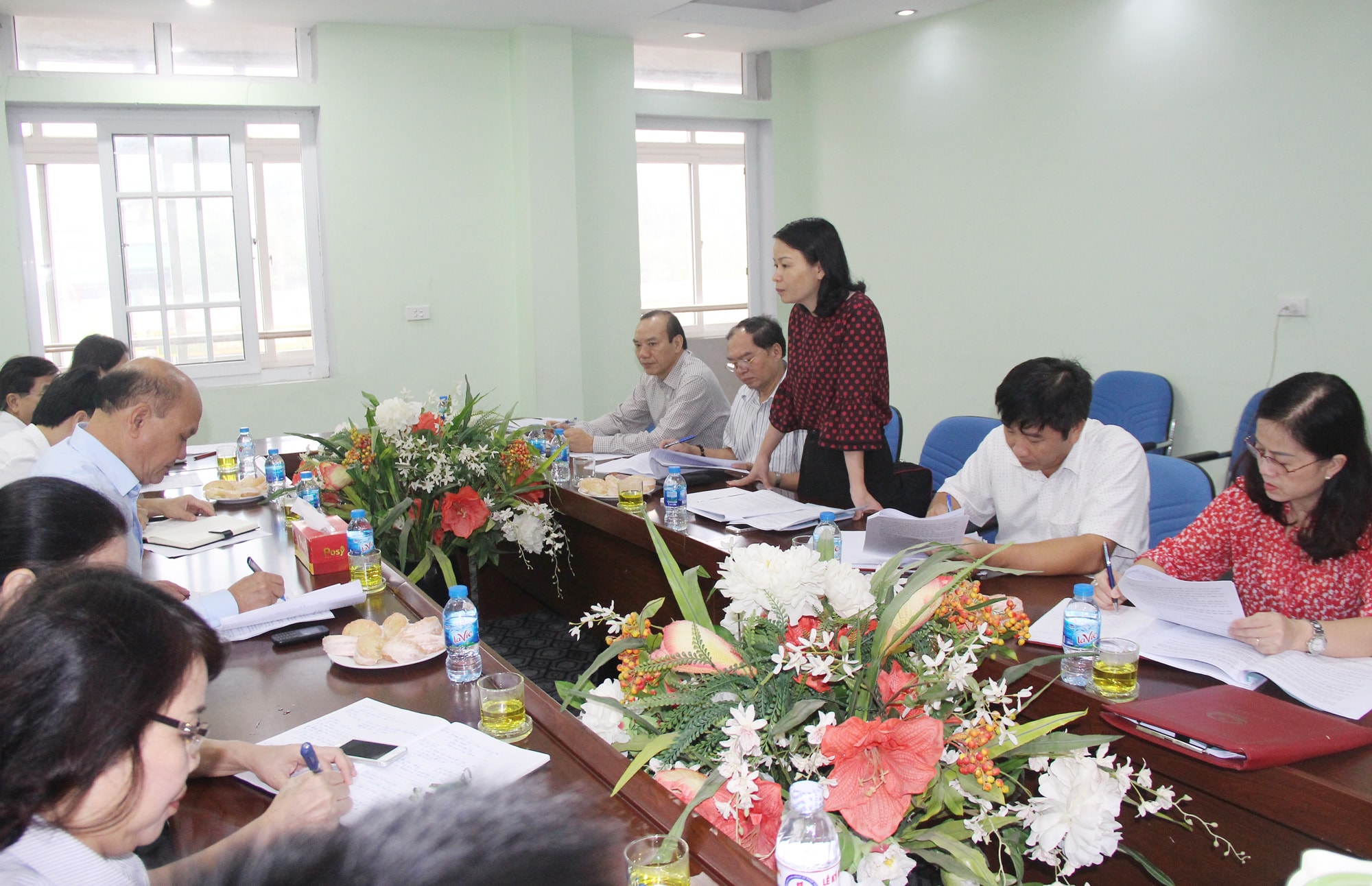 |
| Working scene. Photo: Minh Chi |
Accordingly, at the Vietnam - UK College, the total training target from 2015 to 2017 was only around 1,000 people; apart from the preschool education sector reaching 100% of the target, the remaining sectors such as pharmacy and nursing reached 80%; accounting and tourism reached 50% of the target. The primary nursing and culinary arts systems only reached 30% of the target.
Faced with such difficulties, in addition to recruiting students to train for degrees and certificates at the school, the school also strengthens its links with localities and hospitals to provide training to improve professional qualifications and skills in some fields such as nursing, pharmacy, document - archives, etc.; and links with businesses to teach vocational skills according to labor needs and labor export.
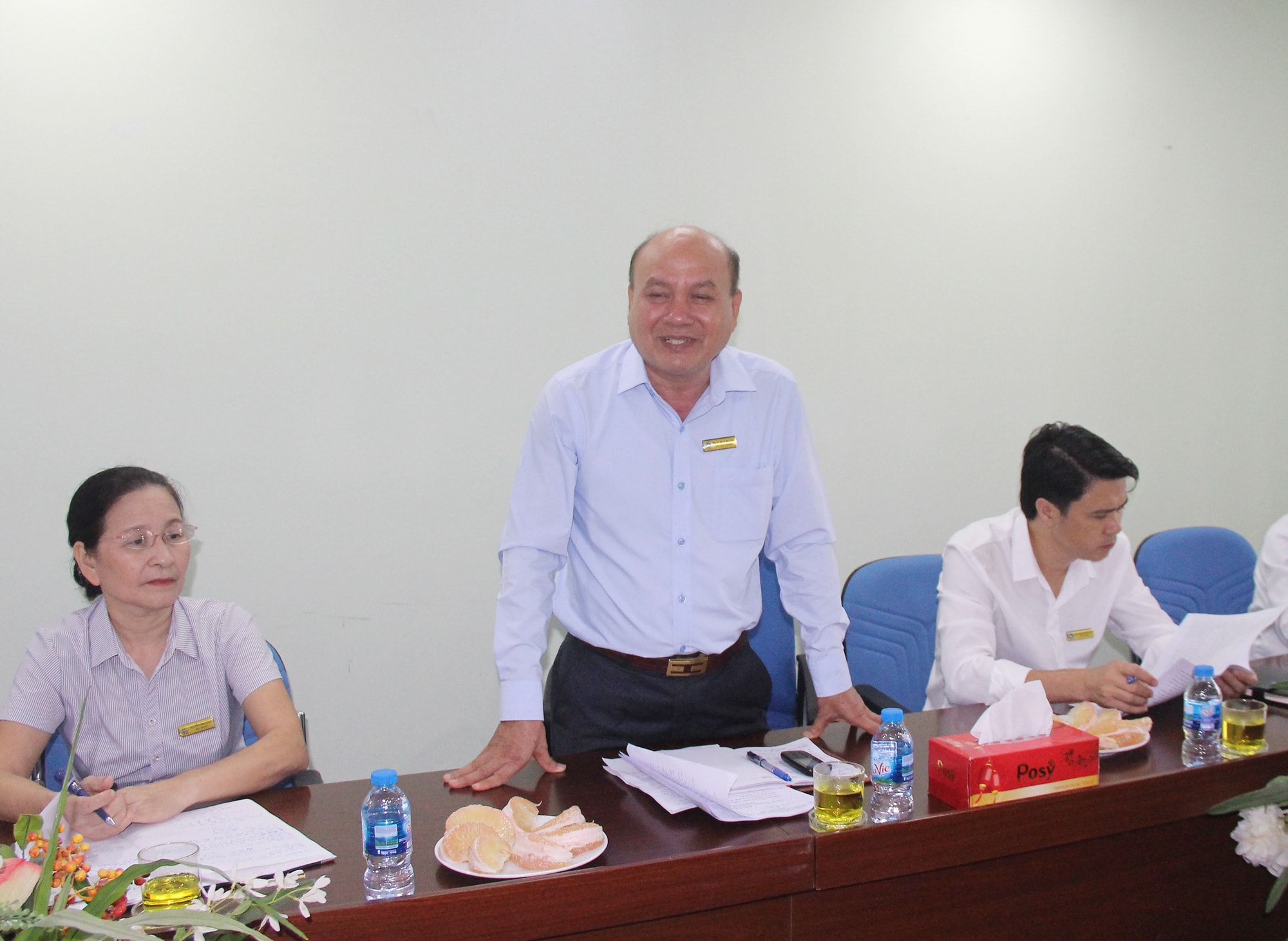 |
| Mr. Phan Huy Hoang - Vice Principal of Vietnam - UK College suggested not to assign quotas to vocational schools to create equal competition. Photo: Minh Chi |
As for the Vietnam - Australia College, according to Principal Phan Trong Hong, in the three years 2015, 2016 and 2017, the school was really stuck in enrollment. In 2015 and 2017, each year it was only able to enroll 1 business accounting class of 27 students; in 2016 alone, it was unable to enroll any students.
According to Mr. Phan Trong Hong, since June 2017, the Vietnam - Australia College has been transferred to a new investor, Chinh Minh Nghe An Company. And currently, the unit is researching to reorient the direction and new training profession. In the immediate future, the investor is organizing the opening of a kindergarten, and at the same time coordinating with localities to open an elementary administrative clerical class with nearly 100 students.
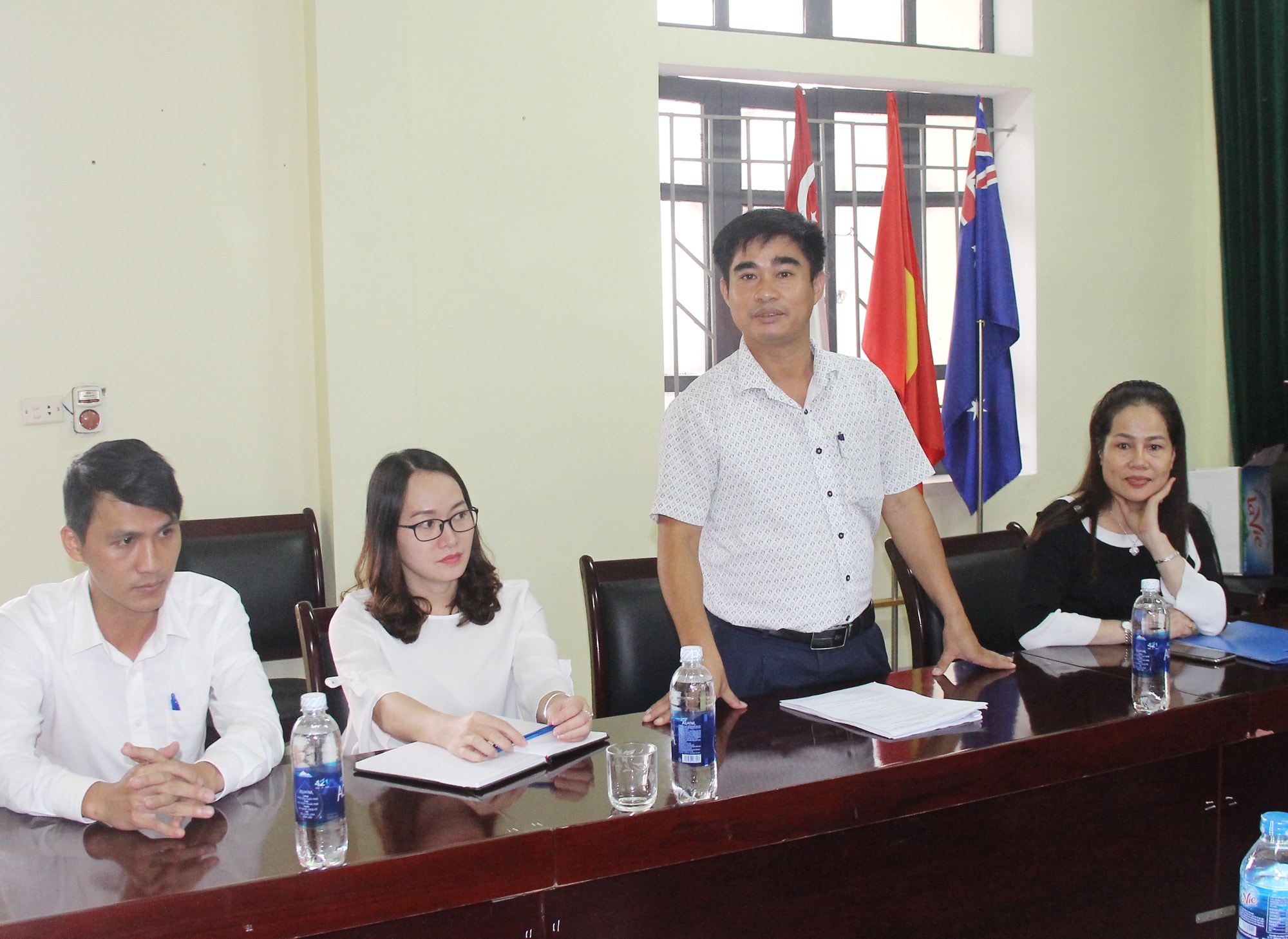 |
| Mr. Phan Trong Hong - Principal of Vietnam - Australia College said that the school is at a deadlock in enrollment. Photo: Minh Chi |
Through monitoring, the delegation also recorded a reflection of the situation where some vocational schools in the province cooperated with vocational schools outside the province only to recruit students "on behalf of" them to send them to study outside the province; meanwhile, vocational schools in the area expanded with a large number but could not recruit students, creating unhealthy competition.
On the other hand, the monitoring delegation also noted opinions from vocational schools recommending that state management agencies should not set training quotas for vocational schools to create equal competition.
On behalf of the monitoring delegation, Deputy Head of the Culture - Social Committee of the Provincial People's Council Nguyen Thi Lan acknowledged the recommendations from vocational schools, and affirmed that the trend of vocational training is increasing, so schools need to proactively research the labor market to diversify occupations, meet the needs of learners, and link with the labor needs of society.
Along with that, schools also need to strengthen links with businesses to train according to orders, train with addresses, create post-training effectiveness, thereby contributing to enhancing the school's brand and reputation and attracting learners.
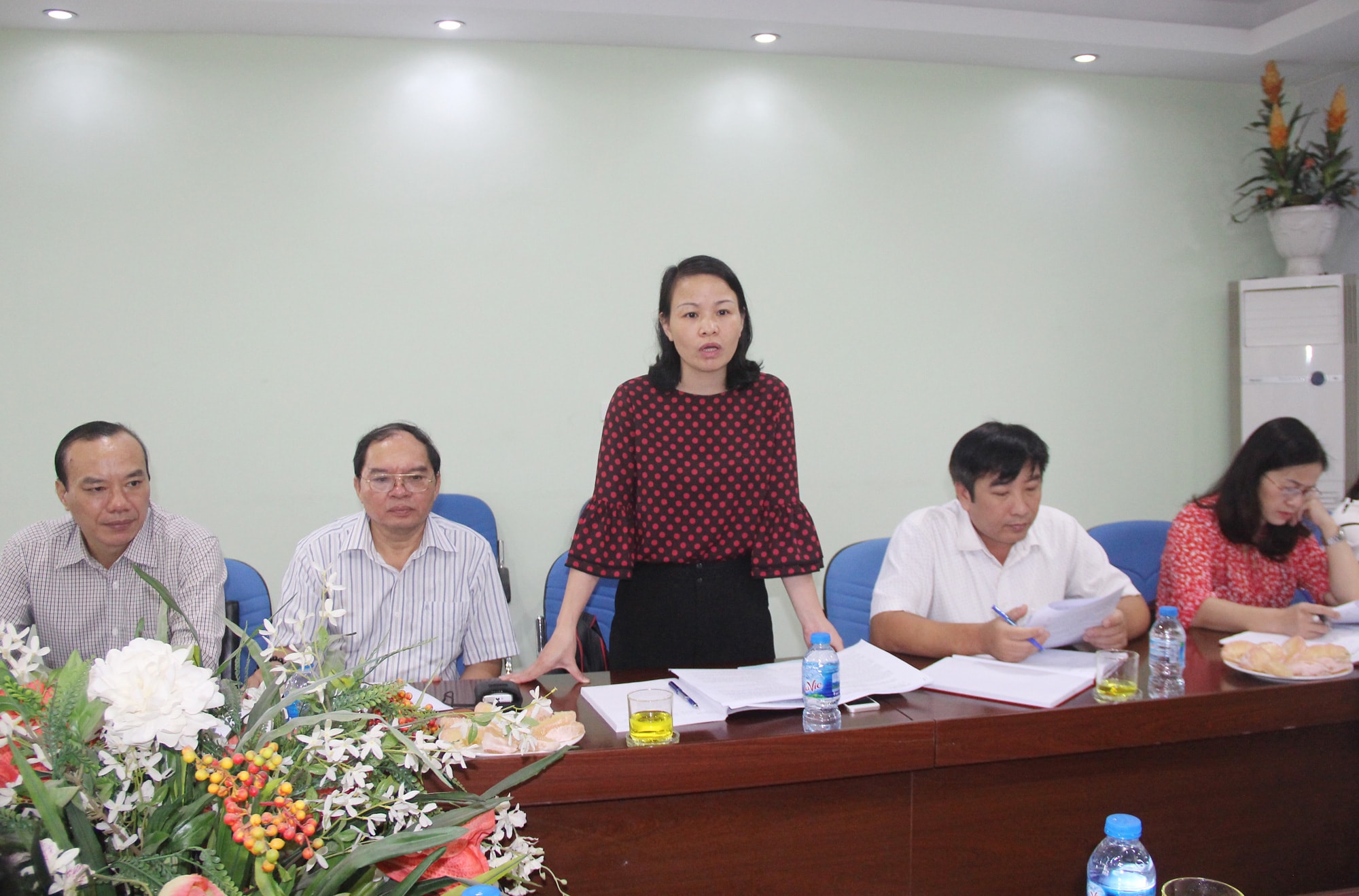 |
| Deputy Head of the Culture and Social Affairs Committee of the Provincial People's Council Nguyen Thi Lan suggested that schools strengthen their links with businesses to provide vocational training and create jobs after training. Photo: Minh Chi |
The Deputy Head of the Culture and Social Affairs Committee of the Provincial People's Council also noted that vocational schools need to comply with legal regulations in consulting activities and signing contracts to send students to study abroad, ensuring the rights of learners, especially stable employment after the study period.

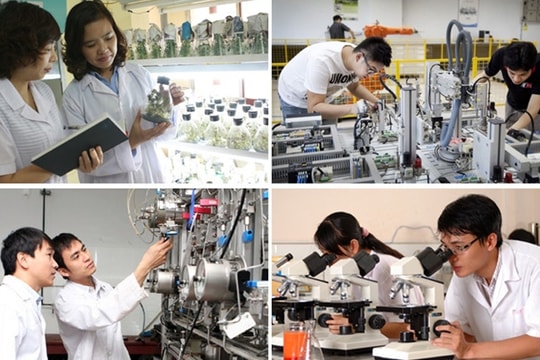

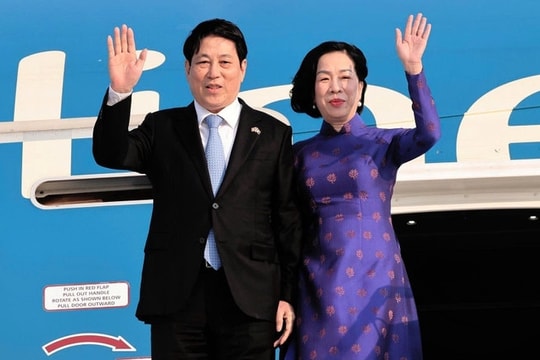
.jpg)
.jpg)
